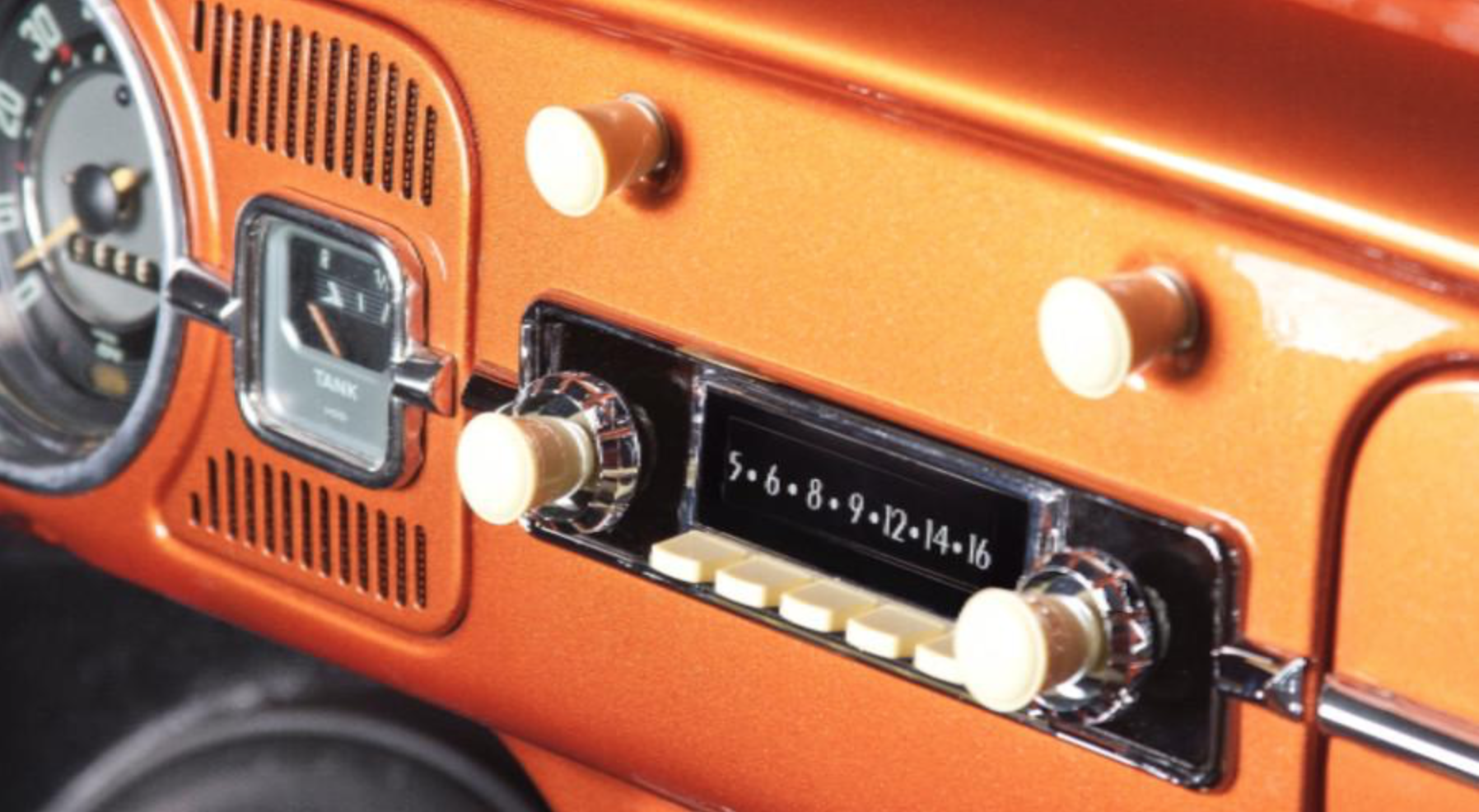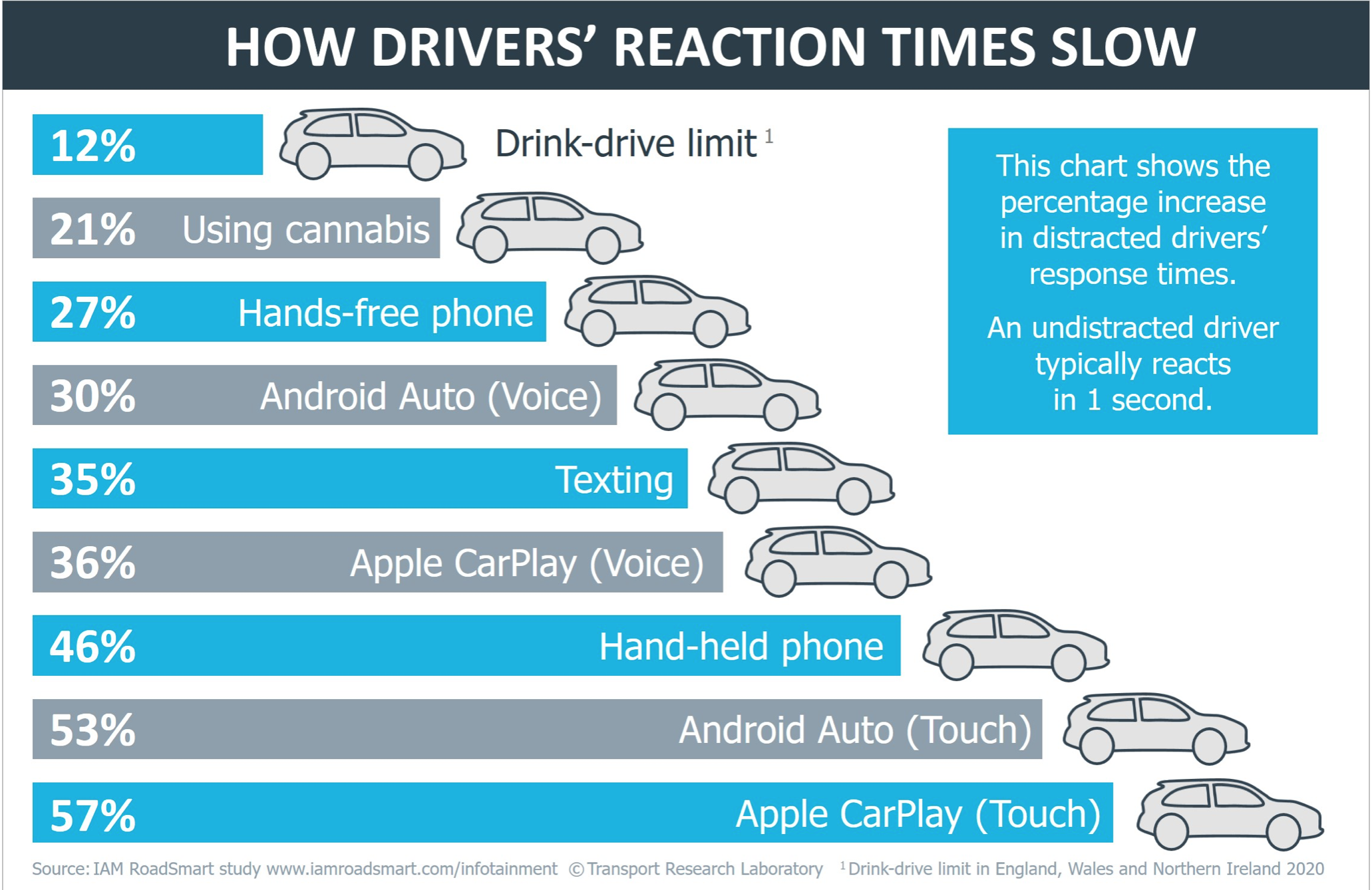Have you ever read the results of some study that probably cost tens or hundreds of thousands of dollars to conduct, and thought, Someone paid money for this? Such as the one I read about some time ago, which showed that drivers of expensive cars were less likely to yield to pedestrians and bicyclists than drivers of older or cheaper cars. Wow, never could have figured that out on my own.
The latest is one run by the UK’s largest independent road-safety charity, IAM RoadSmart, which reveals that in-car touch-screen infotainment systems such Apple CarPlay and Android Auto drastically slow the reaction times of drivers. Stopping distances, lane control, and response to external stimuli all suffered even in comparison with texting.
Someone paid money for this?
Think back—those of you who can think back this far—to when the radio in your vehicle had two knobs and four or five manual station preset buttons. My FJ40 came with such a unit. To operate it I never had to take my eyes off the road. I could reach down and feel the on/off/volume knob, and tactilely count with a finger which station button I wanted to press.
Not so with the—rather ironically named when you think about it—touch screen. There is no way to tactilely determine where you are on a touch screen; you have to look at it. Combine that with the multiple functions and choices necessary to wade through and, well, as IAM RoadSmarts tests revealed, reaction times of tested drivers were worse than for those on cannabis and at the legal alcohol limit. Some drivers took their eyes off the road for as long as 16 seconds—that’s 500 yards at 70 miles per hour. Reaction times while choosing music through Spotify on Android Auto or Apple CarPlay were worse than for drivers who were texting.
It should be obvious by extrapolation that any operation controlled by touch screen—climate control, navigation, etc.—would have the same deleterious effect on reaction time. This, not any Luddite obtuseness, is why I strongly prefer mechanical controls for such accessories.
Incidentally, the same study showed that reaction times while using voice control for Android Auto and Apple CarPlay were also slower, albeit by not as much. Simply put, anything that takes your mind off driving is bad for your driving.
If you’d like to send me money for this revelatory post, email me for my Paypal address.


